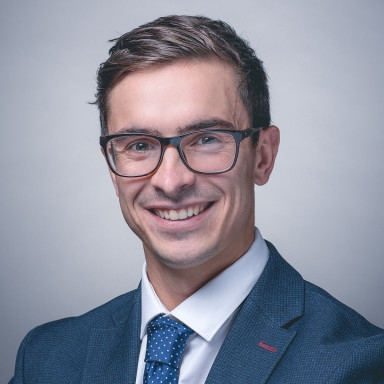The managers hunt around the globe for companies with sustainable growth prospects and resilient dividends
The managers are supported by a well-resourced and diverse team at Baillie Gifford
The trust has a proven track record of year-on-year dividend growth, having increased its pay-out for 51 consecutive years
How it fits in a portfolio
Founded in 1873, Scottish American Investment Company (SAINTS) is one of the oldest investment trusts around. The managers search globally for companies with the potential for sustainable growth and a reliable dividend that could grow into the future. The aim is to grow income and capital over the long term by primarily investing in company shares, but they also invest in other assets such as property, infrastructure, and bonds. Given its growth bias it could work well alongside ‘value’ funds or investment trusts investing in unloved companies to form part of an income focused portfolio.
Investors in investment trusts should be aware the trust can trade at a discount or premium to net asset value (NAV).
Manager
James Dow and Toby Ross had been joint lead managers of the trust since August 2017, having served as deputy managers since July 2016. As of February 2024 Ross stepped down from his role of deputy manager for the trust to focus on other responsibilities, as he has now assumed leadership of the Sustainable Growth Team at Baillie Gifford. Ross has also stepped down from the Baillie Gifford Global Income Growth fund, an open-ended fund that invests in a similar way to this trust but doesn’t have the ability to invest in unquoted companies or borrow to invest, known as ‘gearing’.
Dow has spent his entire investment career at Baillie Gifford after joining its graduate scheme. Prior to his current positions, Dow spent time covering US companies. He’s also co-manager of the Baillie Gifford Sustainable Income fund. Given the overlap in their process and approach, we think he can comfortably handle these responsibilities.
Ross Mathison who was named co-manager on their near identical open-ended fund at the start of 2022 has been named deputy manager of the trust. Mathison joined Baillie Gifford in 2019 having previously worked at Aviva and Standard Life covering European and global equities.
The managers are supported by a team of three analysts alongside a dedicated Environment, Social and Governance (ESG) analyst and investment researcher. They also benefit from the wider resource available at Baillie Gifford which consists of over 100 investment professionals.
Process
SAINTS has all the hallmarks of a Baillie Gifford portfolio, unconstrained with a focus on growth over the longer term. Dow and Mathison require companies to demonstrate two key traits: a dependable income stream and the potential for above inflation profit growth. These companies need to demonstrate resilience through the economic cycle. This leads them to be very selective and only those companies they consider to be ‘exceptional’ make the cut.
To identify opportunities, they focus on bottom-up analysis (looking at individual company prospects) using a combination of quantitative and qualitative factors. Each company must pass their nine-question framework which focuses on understanding the drivers of growth and the reliability of the dividend. Meeting with company management is a crucial part of this process and it allows them to gauge the attitude towards paying a dividend to shareholders. If a company cuts its dividend, the managers review the investment, but this doesn’t necessarily mean it will be sold. Each company is assessed on a case-by-case basis and the managers acknowledge that dividend cuts can be prudent for long-term growth, for example to fund the acquisition of another business.
This analysis whittles a universe of around 4,500 into a portfolio of between 50-100 holdings. The trust is split into four areas looking for different drivers of free cash flow - cash available to the business after expenses have been paid.
‘Compounding machines’ form the bedrock of the trust and consists of quality companies with strong balance sheets, barriers to entry from competition and experienced management teams. Companies like Nestlé, Microsoft and McDonald’s fit into this bucket. The managers like companies with an ‘exceptional revenue opportunity’, these tend to be market leaders with pricing power (the ability to raise prices without affecting demand) offering the potential for quicker growth. The remaining areas focus on longer-term free cash flow growth, looking for companies with a catalyst for positive change. Companies that possess these qualities can be hard to find, but by investing globally the managers give themselves the best opportunity to seek them out.
The managers keep the trust diversified by investing across different regions. The largest investments are in developed markets like the US and Europe but exposure to Asia also accounted for around 13% of the trust at the end of March 2025. The managers also invest in emerging markets which adds risk.
Over the trust’s financial year to December 2024, the team made several changes to the portfolio. Dow added three new holdings, including the Swedish industrial company Epiroc. Epiroc is a leader in drilling equipment used in mining and construction. The company continues to innovate, particularly through automated drilling technologies that enhance safety, and software that improves drilling analysis. The team expect Epiroc to be a reliable dividend payer. The US financial services company CME Group was also added to the trust. They expect its revenue to grow over time as trading volumes increase. CME also pays an attractive dividend. Finally, the team added the US payroll company Paychex. Paychex provides payroll software to small and medium-sized US businesses, helping them navigate complex state and federal regulations. The company also offers additional services such as health insurance and recruitment tools.
In contrast, Dow also sold several companies from the trust. Australian healthcare firm Sonic Healthcare and British-American technology company Dolby Laboratories were both sold following periods of stalled dividend growth. The team believe both companies face headwinds that make achieving future dividend increases more challenging. French luxury brand Kering, best known for owning Gucci, was also sold. Dow believes the company’s strategic shift is unlikely to succeed and may result in a loss of customers, potentially leading to a reduction in its dividend. Additionally, UK healthcare company GlaxoSmithKline (GSK) was sold, and the trust no longer holds shares in Hargreaves Lansdown following the sale of the company to a private equity consortium.
The trust also invests in a portfolio of UK commercial property managed by OLIM Property Limited and some global bonds, which includes riskier high yield and emerging market bonds. More recently they have also set up a small infrastructure equities portfolio to help diversify the income stream and deliver growth ahead of inflation. These investments are made with borrowed money with the intention of increasing returns (known as gearing), but this could magnify losses in a falling market and increases risk. Gearing at the end of 2024 was 10%, which is the same as at the end of the trust’s last financial year.
The managers can also use derivatives, which if used adds risk. The investment trust structure gives them the flexibility to also invest in higher-risk unlisted companies, but they don’t do this at the current time and don’t anticipate doing so for the foreseeable future.
Culture
This trust is managed by Baillie Gifford, an independent private partnership founded in 1908. It’s owned by partners who work full time at the firm. This ownership structure means senior managers have a vested interest in the company, and its funds and investment trusts, performing well. We think this has helped cultivate a culture with a long-term focus, where investors' interests are at the centre of decision making. We also like that managers are incentivised in a way that aligns their interests with those of long-term investors and should retain talented managers.
ESG Integration
All of Baillie Gifford’s funds are run with a long-term investment horizon in mind. The firm’s fund managers see themselves as long-term owners of a business, not short-term renters. So, assessing whether society will support, or at the very least, tolerate, the business model over the long term, and whether management will act as good stewards of shareholders’ capital is an important part of the investment process.
Dedicated ESG (Environmental. Social, Governance) analysts sit with and report into both their respective investment teams, and the central ESG function. The firm’s ESG efforts are supported by a dedicated Climate team, an ESG Core team (responsible for voting operations, ESG data and ESG-related client communications). Individual investment teams are responsible for voting decisions and engagement for the companies they invest in. Investment in controversial weapons and cannabis is prohibited across the firm.
The firm reports all its voting decisions and provides rationale in situations where it votes against management or abstains, in a detailed quarterly voting report. There is also a quarterly engagement report which details the companies engaged with, and the topic discussed, and further engagement case studies are available on the website. All this information is brought together in the firm’s annual Investment Stewardship Activities report.
Baillie Gifford courted controversy in 2024 when it left the Net Zero Asset Managers’ Initiative, a group of asset managers that have committed to achieving net zero carbon emissions by 2050, and the Climate Action 100+ collaborative engagement scheme. It claimed membership of the organisations "has become contested", adding "this risks distracting from our core responsibilities". We view this as a disappointing backward step but are encouraged that the group's net zero and engagement-related commitments remain unchanged
Although the managers consider ESG related issues in their analysis this is not specifically an ESG fund.
Cost
The net ongoing annual charge was 0.58% in 2024, this is the same as it was in 2023. Investors should refer to the latest annual reports and accounts, and Key Information Document for details of the risks and charging structure.
If held in a SIPP or ISA the HL platform charge of 0.45% (capped at £200 p.a. for a SIPP and £45 for an ISA) per annum also applies. The platform charge doesn’t apply if the trust is held in a Fund and Share Account or a Junior ISA.
Investment trusts trade like shares, both a buy and sell instruction will be subject to the HL share dealing charges.
Performance
The managers have done a good job of outperforming their peer group since Dow took over in July 2018. Over this period the trust’s share price has increased 58.13% vs 35.41% for the AIC Global Equity Income peer group. The trust’s net asset value (NAV) has increased 78.77% over this period. Remember that past performance is not a guide to the future.
Over the trusts latest financial year to the end of December 2024, the trust’s share price fell by -4.12% compared to a gain of 13.65% for the AIC Global Equity Income peer group. Despite the fall in share price the trust’s NAV rose 6.29.%.
The equity portion of the portfolio returned 6.1% over the trust’s latest financial year. However, several companies underperformed the team’s expectations. This included the Brazilian stock exchange B3, which was affected by negative sentiment toward Brazil. French financial services company Edenred also detracted from performance, as did U.S. postal company UPS, which experienced a decline following a strategic shift that involved ending its shipping partnership with Amazon.
On the positive side, Taiwanese semiconductor company TSMC delivered strong returns, benefiting from increased demand driven by advancements in artificial intelligence. German technology firm SAP SE also contributed positively to performance, as did Hargreaves Lansdown, following news of a takeover.
It was a more challenging period for the trust’s bond and infrastructure portfolios, which returned -4.1% and -2.8%, respectively. However, the property portfolio performed well, rising by 8.3%.
The total dividend per share for the year to 31 December 2024 was 14.875p, a 5.5% increase on the previous 12-month period. This means the trust has increased its dividend for 51 years in a row and is an AIC Dividend Hero. The trust has a dividend yield of 2.90%, although remember yields are variable and aren’t a reliable indicator of future income.
At the time of writing the trust trades at a 8.95% discount to NAV, over the last 12 months the discount has averaged 9.66%.
Annual percentage growth
30/04/2020 to 30/04/2021 | 30/04/2021 to 30/04/2022 | 30/04/2022 to 30/04/2023 | 30/04/2023 to 30/04/2024 | 30/04/2024 to 30/04/2025 | |
|---|---|---|---|---|---|
Scottish American Investment | 31.41% | 4.55% | 8.70% | -3.00% | 1.92% |
AIC Investment Trust - Global Equity Income | 31.62% | 0.79% | -3.19% | 6.94% | 7.99% |


